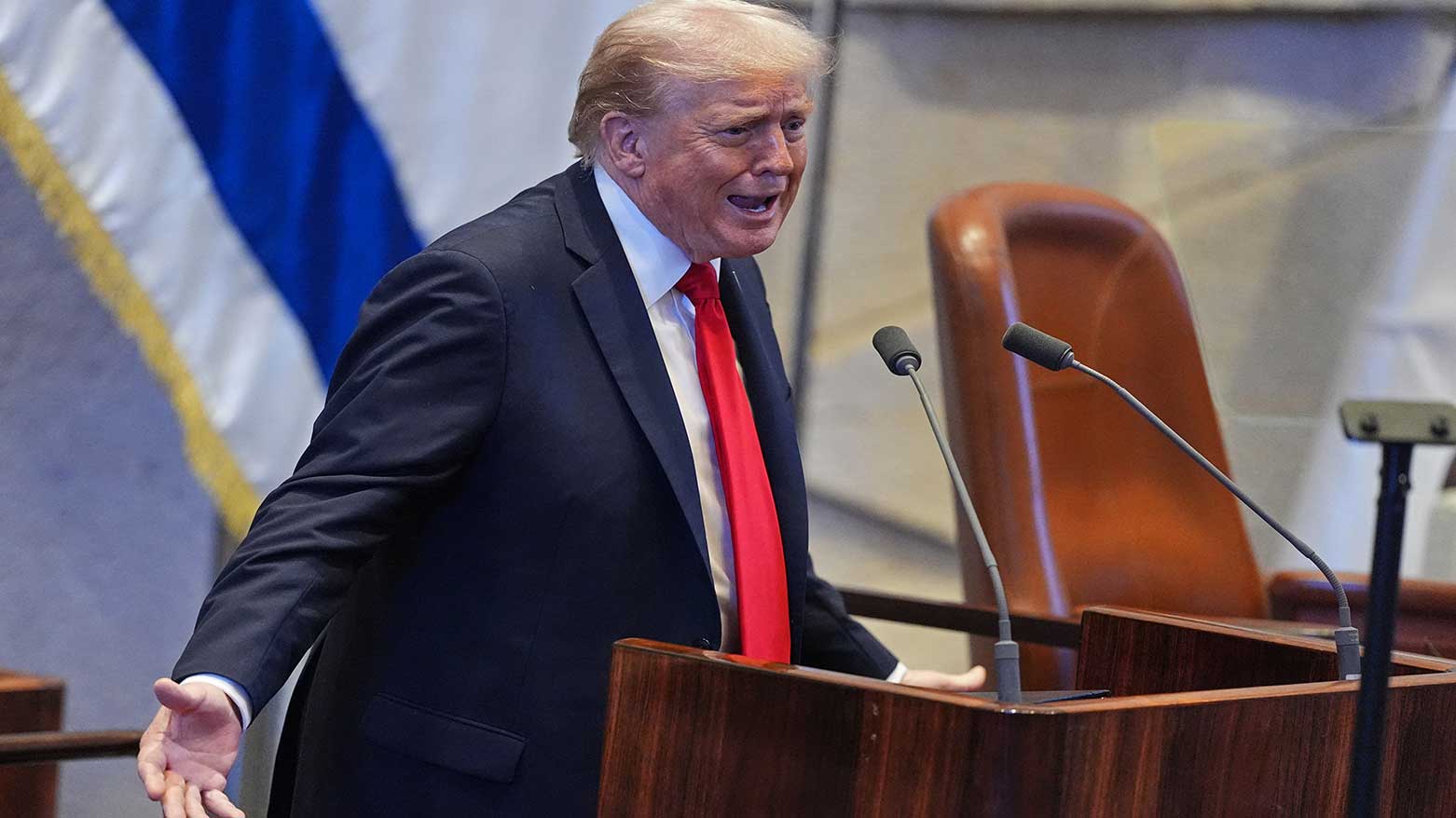Iran Rejects Trump’s Call for Peace, Citing U.S. Strikes on Nuclear Sites
Tehran’s fiery response underscores the lingering fallout from June’s 12-day Iran-Israel war, which derailed nuclear talks and deepened regional mistrust.

ERBIL (Kurdistan24) — Iran on Tuesday sharply dismissed U.S. President Donald Trump’s call for peace talks, accusing Washington of hypocrisy after its military strikes on Iranian nuclear sites earlier this year.
In a statement released by the Iranian Foreign Ministry, Tehran said that “the desire for peace and dialogue expressed by the U.S. president is at odds with the hostile and criminal behavior of the United States towards the Iranian people.”
The comments came a day after President Trump’s visit to Israel, where he addressed the Knesset and called on Iran to “renounce terrorists, stop threatening their neighbors, quit funding their militant proxies, and finally recognize Israel’s right to exist.”
Trump emphasized that “nothing would do more good” for the Middle East than an Iranian commitment to peace, adding that “the ball is in Tehran’s court.”
Iran’s foreign ministry responded with anger, calling Trump’s remarks “irresponsible and shameful” and accusing Washington of being “a leading producer of terrorism and a supporter of the terrorist and genocidal Zionist regime.”
The statement questioned the sincerity of Washington’s peace message, asking, “How can one attack the residential areas and nuclear facilities of a country in the midst of political negotiations, kill more than 1,000 people, including innocent women and children, and then demand peace and friendship?”
In mid-June, Israel launched an unprecedented 12-day bombing campaign on Iran, targeting nuclear and military facilities as well as populated areas. The strikes, which reportedly killed more than 1,000 people, were backed by U.S. precision attacks on key nuclear sites.
The conflict, which Tehran described as “a war of aggression,” effectively derailed ongoing indirect nuclear negotiations between Tehran and Washington.
Iran retaliated with missile and drone strikes that killed dozens in Israel, prompting fears of a wider regional war. The two sides agreed to a fragile ceasefire on June 24, brokered by Egypt and Qatar, which has since held despite sporadic tensions.
The June conflict marked one of the most dangerous escalations between Iran and Israel in decades, underscoring how quickly the regional balance can shift in the Middle East.
Trump’s latest remarks—made just hours before his departure to Cairo for a peace summit on Gaza—appear aimed at projecting American leadership in Middle East diplomacy. However, Tehran’s harsh response highlights the deep mistrust and geopolitical rifts that continue to obstruct any path toward a lasting peace.